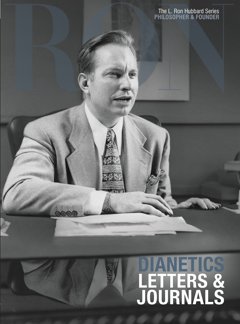Our Dianetics PDFs
Our Dianetics PDFs
Blog Article
Unknown Facts About Dianetics
Table of ContentsWhat Does Dianetics Mean?The Dianetics IdeasAll about Dianetics4 Easy Facts About Dianetics Described
I could not ever not intend to get anything that enters your mind for you- if it was or else, I would not be resting below with you, doing this. I not just can never ever have a problem, or not wish to hear something that comes to mind for you, but I'm totally anxious to know every idea, every idea, every photo or feeling that emerges or manifests for you- don't ever believe or else, and if for one reason or another you do, please just allow me know! Sometimes, you might have an idea, and picture, idea or case turn up that does not appear to address the inquiry, or associate with it, yet nonetheless, always do tell me about it, and as we continue, the importance will certainly arise for you.This is integral in the basis of handling, and the subject of this discussion: the basic duties of the therapist and the customer: The fundamental function of the therapist is, in contrast to "conventional training", not to regulate, which means to enforce and/or hinder, however to instead function from the basis of EMPOWERING THE CUSTOMER.

6 Simple Techniques For Dianetics
John Mcmasters revealed this basic reality splendidly well in among his talks on Power processing, wherein he discusses how he was asked what this "special propensity" was that he had for giving such wonderful sessions; he had to think of that for a minute, and found that it was what he wasn't doing, in addition to what he was doing: he wasn't reviewing, judging, computer, or actually, producing any ideas, not to mention spoken expressions, after giving the command and while awaiting the PC to finish their response to their fulfillment; he was, simply and just, existing with the computer, and completely interested.
The role of the therapist, demonstrated; that was his "unique flair". I have had my very own experience which educated me this well, very beforehand in the game. In 1982, having actually recently finished my training and teaching fellowship on New Age Dianetics, I was running this on a COMPUTER, and there was a point in the session where (being a bit wet behind the ears not yet having many hours under my belt as a professional auditor) the PC seemed to be "taking as well lengthy" to share anything verbally after I gave him a command.
This trick became one of the most valuable contribution that John ever made to the subject of therapy or auditing (Dianetics). In my simple point of view, it is the best contribution that anybody has ever made to these subjectsthe application is totally non-judgemental, non-evaluative, and without any type of pointer, advice his explanation or opinion.no preconceived agenda for people, or 'levels' that they must do
In Scientology we prided ourselves on not evaluating for individuals. All that actually indicated was that the auditor did not VERBALLY review for the PC in session.
The Best Strategy To Use For Dianetics

Anybody who had ever before seen John audit can not aid yet observe a special quality in his auditing."The customer's standard function is to be there with the purpose of relocating the direction of their spiritual objectives, and to freely and totally reveal and experience whatever manifests for them in responding to the questions and implementing the directions in the handling.
This is something to process as required. Additionally, individuals frequently have previous experience and/or brainwashing in auditing/processing which, in some ways, and to some levels, in fact misguides them right into attitudes, ideas and actions patterns that stop the full awareness of these duties, and so they will have a tendency to hinder the expressing of directory what comes to mind, as in the instances provided over - Dianetics. * The very first, and perhaps leading examples of mis-indoctrination leading to much less than completely smooth and reliable sessions, can be found in particular aspects of the training regimens, or "TR's":"TR's" are often a person's very first, or a minimum of early, experience in Scientology, and while I will certainly take place to clarify what I see as the flaws in concept and practice, however, tend to be significantly healing, done as they are given (Hubbard insists that "TR's are not processing, they are training", but factually, they are both processing AND training)
Alan Walter made similar observations, and enhanced these with his "Visibility Processes". There is no "failing", and no rejection of the fact of this being handling. The focus, as it ought to be, gets on experiencing the other person's existence. All the manifestations which get a "flunk" in doing "TR-0" are just the being's efforts to withstand the other person's visibility, and as opposed to being bugged and nagged with "Flunk", which imposes "failure!" on the being, one just requires to be motivated to "stick their feet in the water a little deeper", to increasingly refurbish their capability and desire to totally share and experience "being right here", or "presence", with others.
The 8-Second Trick For Dianetics

Report this page